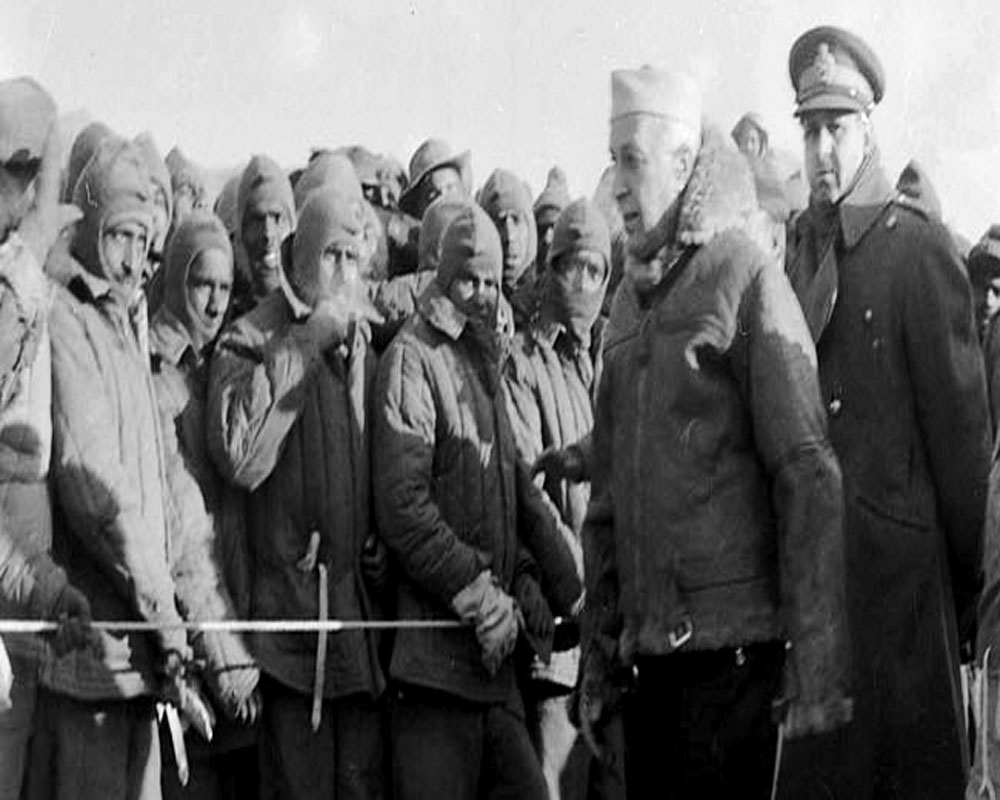The war of 1962 exposed the inept leadership of a Prime Minister who was thoroughly alienated from the realities of both India and the geopolitics
While receiving the diplomatic credentials from India’s Ambassador KM Panikkar, Mao Zedong had said, “India and China cannot afford to have war. We have too many important problems to think about,” and added, “China had no aggressive intentions towards any body and least of all towards India”. Being a socialist, Jawaharlal Nehru, fell for Mao’s sweetness in good faith. Nehru’s dear friend VK Krishna Menon, whose intellect the former was in awe of, was also a communist. Menon believed that no socialist country can go to war with another such country. When General Robert Lockhart, the Commander-in-Chief of the Indian Army in the immediate years after independence, once asked Nehru as to the kind of army he envisaged for India so that he could plan accordingly, Nehru reacted sharply, “What army? India is a peace-loving country and doesn’t want war. Our police is sufficient to protect us”.
Sardar Vallabhbhai Patel’s advice dated 7th November 1950, proved to be water off a duck’s back. Patel had written, “We have practically been alone in championing the cause of China’s entry into UN. In spite of this, China is not convinced about our disinterestedness, it continues to regard us with suspicion and the whole psychology is one, of scepticism mixed with a little hostility. In the background of this, we have to consider what new situation now faces us as a result of the disappearance of Tibet, and the expansion of China almost up to our gates”.
Impervious to his colleague’s advice, Nehru followed the socialist line propagated by his buddy Krishna Menon, choosing to befriend Chinese foreign minister Chou En Lai, going about warmly introducing him to his Asian counterpart heads of state and governments. The Bandung Conference of 1955 was an example when Nehru trotted around chaperoning Chou En Lai.
By the same year, Beijing (then Peking) had already built a highway connecting Tibet with Xinjiang (then Sinkiang). When the Government of India came to know of this serious development, Nehru tried to explain it away to Parliament by stating that in Aksai Chin, “not a blade of grass grows”. I wonder if Rahul Gandhi was referring to this loss of what he called “grazing land” and about which Prime Minister Modi had “not disclosed”.
Nehru’s pride did not permit him to change India’s approach towards Chinese mischief although with Chou En Lai, he shifted from his charm to gradual animosity. The Chinese reacted by assaulting and killing ten Indian border patrol guards and apprehending another ten at Kongka Pass in the Tibetan region in 1959. This was the final portent, followed by Chou’s visit to New Delhi in 1960, when he reportedly gave Nehru a ‘final offer’ of settlement: India should give up claims to Aksai Chin and China would renounce its ‘rights’ in Arunachal Pradesh, then called North East Frontier Agency (NEFA). The next time India and China met was on the battlefields of Ladakh in the West and Tawang in the east.
While our soldiers fought valorously, the leaders behaved like sissies. Nehru insisted on fighting the Chinese with the helmsmanship of Lt. Gen. Brij Mohan Kaul, who had never witnessed action on a battlefield. The army that was expected to fight in the mountains did not possess a single mountain howitzer. Defence minister Krishna Menon wanted the country’s ordnance factories to produce civilian items like coffee percolators rather than guns and ammunition.
Our jawans thus laid down their lives, having to make do with only the outdated .303 bolt action Lee Enfield rifles. Our troops that went up the hills had only brown canvas shoes and thin woollen pullovers and no warm clothing adequate for the Himalayas. From the distance of Kolkata, it appeared that the Indian high command in 1962 had never heard of anything like strategy. From the days Carl von Clausewitz, the grandfather of modern military science, it was a maxim that a commander should never depend only on terrain for defence, because the enemy, sooner or later, would circumvent it through alternate means of intrusion. This is what the Chinese did at Sela Pass, and Bomdi La had soon to surrender. It did not register on the highest command of our armed forces than an enemy intending to capture and occupy territory does not invade in the autumn but usually in early spring. The Chinese opened fire on October 20, 1962. Every defending army prefers to fight on a level playing field, something that was ignored.
Our troops were ill-equipped, and therefore, adhering to the above strategy was all the more important. Instead of offering immediate resistance the border, had we withdrawn to the plains of Assam, it would have been much easier to fight the invading Chinese army, especially in our thin pullovers and canvas shoes.
In the event, the sorry saga of 1962 exposed the inept leadership of a Prime Minister who was so thoroughly alienated from the realities of both India and international geopolitics. The country’s present leadership, if anything, has not only resolutely stood up to Chinese bullying but has also forced it to eat humble pie at Dokalam and Galwan. It is important for us to learn of what led to the loss of territory for which the current generation of the dynasty responsible for it, is pointing accusing fingers at the present leadership.
(The writer is a well-known columnist, an author and a former member of the Rajya Sabha. The views expressed are personal)


























